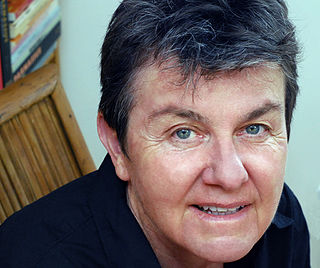A Quote by Eckhart Tolle
When you continuously know and sense yourself as the space of consciousness rather than what appears in consciousness - sense perceptions, thoughts, emotions - then it can be said that you are enlightened... except that you wouldn't think or speak of yourself as 'enlightened', because that would instantly create another mind-based conceptual identity and so it would be the end of 'your' enlightenment.
Related Quotes
In the egoic state, your sense of self, your identity, is derived from your thinking mind - in other words, what your mind tells you about yourself: the storyline of you, the memories, the expectations, all the thoughts that go through your head continuously and the emotions that reflect those thoughts. All those things make up your sense of self.
So the single most vital step on your journey toward enlightenment is this: learn to disidentify from your mind. Every time you create a gap in the stream of mind, the light of your consciousness grows stronger. One day you may catch yourself smiling at the voice in your head, as you would smile at the antics of a child. This means that you no longer take the content of your mind all that seriously, as your sense of self does not depend on it.
Ultimately, there is no such thing as "my consciousness," but just the one consciousness and to sense your connectedness with the one (I can sense that continuously, which is why I can say that I know this for sure) to sense that connectedness with the one consciousness that pervades the universe, which in some traditions is called God, to sense that frees you of fear, from anxiety, and takes you to a very deep place of peace, but also of heightened aliveness.
Strictly speaking, "you" cannot become enlightened, because who you take yourself to be is like a ripple in the ocean of consciousness - or a little wave if you're a VIP - and the ripple doesn't become enlightened until it realizes that its ripple-identity is ultimately a misperception, that it is the ocean taking on a fleeting ripple-form.
This one question-'What do I know for certain?'-is tremendously powerful. When you look deeply into this question, it actually destroys your world. It destroys your whole sense of self, and it's meant to. You come to see that everything you think you know about yourself, everything you think you know about the world, is based on assumptions, beliefs, and opinions-things that you believe because you were taught or told they were true. Until we start to see these false perceptions for what they really are, consciousness will be imprisoned within the dream state.
Further, if Spirit has any meaning at all, then it must be eternal, or without beginning or end. If Spirit had a beginning in time, then it would be strictly temporal, it would not be timeless and eternal. And this means, as regards your own awareness, that you cannot become enlightened. You cannot attain enlightenment. If you could attain enlightenment, then that state would have a beginning in time, and so it would not be true enlightenment.
Since consciousness is the basis of all reality, any shift in consciousness changes every aspect of our reality. Reality is created by consciousness differentiating into cognition, moods, emotions, perceptions, behavior, speech, social interactions, environment, interaction with the forces of nature, and biology. As consciousness evolves, these different aspects of consciousness also change.
It seems like many people think that if you drive yourself crazy, then you can write. I’m absolutely not interested in that. It made sense to me to be as whole and well as I could be, and as happy. I wanted to see what a fortunate life would produce. What writing would come out of a mind that didn’t try to torment itself? What did I have to know? What did I have to do rather than what can I torment and bend myself into doing? What was the fruit on that tree?
Not just any talk is conversation; not any talk raises consciousness. Good conversation has an edge: it opens your eyes to something, quickens your ears. And good conversation reverberates: it keeps on talking in your mind later in the day; the next day, you find yourself still conversing with what was said. That reverberation afterward is the very raising of consciousness; your mind's been moved. You are at another level with your reflections.



























